Common Problems & Solutions During Pregnancy
Along with pregnancy and your changing body will come a variety of discomforts. Additionally, you will be limited in the types of medications that are safe to take for common illnesses, such as allergies and gastrointestinal disturbances. Below is a list of common problems and ways to alleviate them, along with a list of medications that can be utilized during pregnancy.
Nausea or “morning sickness” can occur at any time during pregnancy and is the most common complaint, especially in the first twelve weeks.
Often this nausea is referred to as “morning sickness,” but as any pregnant woman will attest, it can occur at any time of the day. The cause of this nausea is human chorionic gonadotropin (HCG), a hormone released by the placenta. The HCG level is at its highest during the first twelve weeks of pregnancy and then begins to drop and level off for the rest of the pregnancy.
Prevention and treatment of morning sickness
- Take small bites and eat slowly. Eat frequent, light meals throughout the day.
- Avoid fried, greasy, and highly seasoned foods, as well as sweets and caffeine, which tend to aggravate the stomach and worsen the nausea.
- Increase your intake of foods high in vitamin C, such as fresh fruits, vegetables, and juices. Also, increase your intake of vitamin B, which is in foods with brewer’s yeast, whole grains, dairy products, and organ meats. Take a 25mg vitamin B6 supplement every day.
- Have unsalted, unbuttered toast and crackers in the morning.
- Engage in some light exercise, like walking, after eating to help digestion.
- If vomiting occurs, drink plenty of clear liquids such as Gatorade, ginger ale, 7-Up, broth, or Jell-O. If you are unable to tolerate clear liquids for over 12-24 hours, notify the office.
- Sip on room temperature/warm liquids, such as broth, tea or chicken noodle/rice soup. Ginger ale, Sprite or Gatorade may settle easier in your stomach. Try Jell-O, toast, popsicles, bananas, rice, applesauce or plain baked potatoes when you’re feeling better.
Heartburn and indigestion are, unfortunately, another very common complaints of pregnant women.
The old wives’ tale says that if you have heartburn, then you will have a baby with lots of hair. Alas, most women suffer from heartburn, but few have babies with a full head of hair. During pregnancy, your body and the placenta will secrete progesterone. This hormone relaxes the esophageal sphincter, allowing the stomach contents to reflux up the esophagus, thus creating heartburn.
Prevention and treatment for heartburn and indigestion
- Take small bites, eat slowly, and chew food completely.
- Avoid greasy and highly seasoned foods.
- Increase your vitamin B intake.
- Do not mix fats and sweets in the same meal.
- Antacids – see list under Medications
Constipation is also caused by elevated progesterone levels. It causes relaxation of the intestines and slows digestion.
Prevention and treatment of constipation
- Drink an 8-ounce glass of water at least 6-8 times daily.
- Maintain a high fiber diet
- Exercise daily
- Do not use artificial laxatives, as they inhibit the absorption of nutrients from the intestines.
- Stool softener – see list under Medications
Headaches can also be caused by hormonal changes in pregnancy, most commonly during the first eighteen weeks of pregnancy.
Stress and tension can also cause headaches.
Prevention and treatment of headaches
- Eat regularly
- Get plenty of rest
- Avoid crowded and noisy places
- Avoid poorly ventilated or smoke filled rooms
- Acetaminophen can be taken for headaches according to the package directions. If this, along with rest, does not help your headache, you should notify the office or physician on call.


